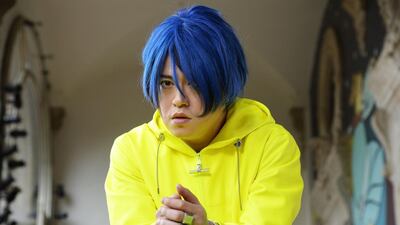Life and death, surveillance and privacy, humans and robots: Keiichiro Shibuya likes to unsettle and push boundaries in music.
The Japanese composer caused a stir in 2012 when he created the first ever virtual opera starring a computer-generated image of a girl, and he is now preparing to go a step further with a show performed by singing androids made by leading roboticist Hiroshi Ishiguro.
"I have a project that I will put on later with robots that have human form," said the 41-year-old, who was in Paris on Monday for a separate solo concert called Perfect Privacy that combined traditional piano with computer-generated music and sounds.
“There will be only robots on stage, no human beings,” he said of his future project planned for 2016, acknowledging that he likes to unsettle and stir up intense emotions with high-tech creations.
With his trademark long fringe covering part of his face, Shibuya is fast becoming a household name in Japan, where his electronic music, piano and futuristic creations have placed him firmly in the limelight.
He is also dating well-known actress Miho Nakayama, and the paparazzi hunt for any proof of their relationship was an inspiration for Perfect Privacy. Monday's concert will see scores of cameras installed in the Theatre du Chatelet to project his every move on stage onto a giant screen.
The concert in the French capital comes almost a year after he put on his sell-out virtual opera The End, which tackles life and death.
That show starred Hatsune Miku, a virtual young girl whose image was projected on stage and who sang through a vocal synthesiser.
Shibuya’s next opera will be even more futuristic with several androids designed by Ishiguro singing on stage, and the music entirely computer-generated.
Robots are used in Japan to perform a variety of tasks such as cooking noodles, helping patients undergo physiotherapy and helping in the clean-up after the 2011 nuclear meltdown at Fukushima.
Ishiguro, a professor at Osaka University, is the master of robotic science, known for creations such as his recent news-reading android.

